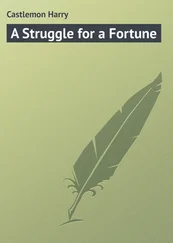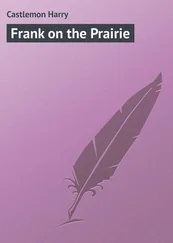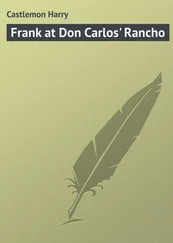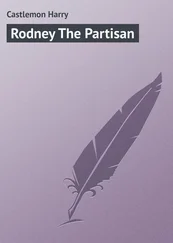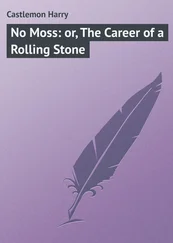Harry Castlemon - A Rebellion in Dixie
Здесь есть возможность читать онлайн «Harry Castlemon - A Rebellion in Dixie» — ознакомительный отрывок электронной книги совершенно бесплатно, а после прочтения отрывка купить полную версию. В некоторых случаях можно слушать аудио, скачать через торрент в формате fb2 и присутствует краткое содержание. Жанр: foreign_prose, на английском языке. Описание произведения, (предисловие) а так же отзывы посетителей доступны на портале библиотеки ЛибКат.
- Название:A Rebellion in Dixie
- Автор:
- Жанр:
- Год:неизвестен
- ISBN:нет данных
- Рейтинг книги:4 / 5. Голосов: 1
-
Избранное:Добавить в избранное
- Отзывы:
-
Ваша оценка:
- 80
- 1
- 2
- 3
- 4
- 5
A Rebellion in Dixie: краткое содержание, описание и аннотация
Предлагаем к чтению аннотацию, описание, краткое содержание или предисловие (зависит от того, что написал сам автор книги «A Rebellion in Dixie»). Если вы не нашли необходимую информацию о книге — напишите в комментариях, мы постараемся отыскать её.
A Rebellion in Dixie — читать онлайн ознакомительный отрывок
Ниже представлен текст книги, разбитый по страницам. Система сохранения места последней прочитанной страницы, позволяет с удобством читать онлайн бесплатно книгу «A Rebellion in Dixie», без необходимости каждый раз заново искать на чём Вы остановились. Поставьте закладку, и сможете в любой момент перейти на страницу, на которой закончили чтение.
Интервал:
Закладка:
“May I ask you where you got that horse?” said Leon, after he had watched her for some length of time.
“I stole her from the wagon-master,” said the rebel. “I should not have been able to get home if it hadn’t been for her. I did the rebels all the damage I could before leaving them.”
“There must be some escort with that wagon-train, isn’t there?” inquired Mr. Sprague.
“There are twenty-five men, including two officers,” replied the rebel. “But half of them you needn’t be afraid of, for they are all Union.”
“How many wagons are there in the train?”
“Forty;” whereat Leon opened his eyes in surprise.
“Will the teamsters fight?”
“Fight!” exclaimed the rebel, in disgust. “No, they won’t. Half of them are armed, but they don’t know what it is to fight. When they see you coming up with your guns all ready the majority of them will throw up their hands.”
If ever there was a happy man in that train it was the rebel. He joked and laughed because he said he was among friends once more and could say what he pleased, and all the way to Ellisville entertained his auditors with thrilling stories of his earliest battles. He told how frightened he was when he got into the first one, and how he looked around for a hollow log into which he could crawl and get out of sight; but there were his companions all standing up without being shot, and his pride made him stay right where he was. At three o’clock they reached Ellisville, where the President had located his office. As Leon had said, there were at least five hundred men camped around there, some with their families, some had no homes at all, but all wanted to be where they could feel that they were of some assistance to Mr. Knight. They knew that when a raid was made upon the county it would come from Perry, the county next on the south, and they calculated to be at hand to stop it. Here Mr. Sprague halted his train and went in to hold an interview with the President, taking the rebel’s gun with him. He was gone but a few minutes, and when he came out his countenance indicated that he had resolved upon something. He mounted his horse and rode in among the lean-tos and other shelters which the men had erected for themselves, and shouted “Attention!” at the top of his voice, and immediately every man who heard him came running up to see what was the matter. When he thought he had got a sufficient number about him, Mr. Sprague proceeded to unfold his plans. It wasn’t the way that a majority of leaders do, for they never let their men know what sort of dangers they are going to meet until they get fairly into them.
“We are going out to-morrow to attack that wagon-train,” said Mr. Sprague, “and I want all of you who can go to be on hand here bright and early.”
“Good!” exclaimed one. “Then we’ll have something to eat.”
Mr. Sprague then went on to tell them how many wagons there were in the train, how many teamsters, and how large an escort of soldiers; for he put implicit faith in the rebel’s word. He was certain that five hundred men, if he could secure that many, advancing with their guns at full cock, would take all the fight out of them. Mr. Sprague was careful not to talk so loud as to attract the attention of Mr. Swayne, for he knew that he would warn the Confederates. Having given his men something to think about, he rode back to place himself at the head of his train, which moved away toward the county line.
CHAPTER V
CAPTURING A WAGON-TRAIN
“Now,” said Mr. Sprague, when Leon rode up beside him, “you want to go and tell your mother the reason that I don’t come home to-night. I shall have to stay here with the men, to be ready to start out with them at an early hour.”
“Then after that I suppose I can stay at home,” said Leon.
“Yes; I think that would be the best place for you. Those twenty-five men, and all of them old soldiers, are not going to give up that wagon-train without some resistance.”
“Well, now, I’ll tell you what’s a fact, father,” said Leon, decidedly. “I just ain’t a-going to stay at home.”
“Why not?” said Mr. Sprague, in surprise.
“If you are going to meet those men, I am going, too. You needn’t think you are going into danger without my being close beside you. I wouldn’t dare look mother in the face again if I should be guilty of remaining at home.”
Mr. Sprague looked down at the horn of his saddle and thought about it. Leon had really more pluck than his father thought he had, and after awhile he thought it would be better to let the boy have his own way in the matter.
“I don’t see what is the use of sending any word at all home to mother,” said Leon, after pondering what his father had said. “She knows that we are in the service of the county, and she won’t care whether we come home or not. The best way would be to stay right down here and go home when we get the job done.”
This settled the matter, and Mr. Sprague never referred to it again. About eight o’clock they arrived at the little bridge which spanned the creek that flowed between Jones and Perry counties, and there Mr. Sprague halted his men and motioned to Mr. Swayne to go on. The man complied, and when he had got far enough across to let all the wagons that came after him get a footing on Confederate soil he stopped and jumped out.
“Thank goodness I’ve got a white man’s ground under my feet!” he exclaimed; and no one had ever seen him so mad before. He seemed to be holding in for just this occasion, and he was so angry that he could scarcely speak plainly. “I suppose that now I can talk to you as I have a mind to.”
“Draw yourselves in line across this bridge and hold your guns in readiness to shoot,” said Mr. Sprague in a low tone to his men. “He may open fire on us before we can get under cover. Oh, yes, you can say what you please, now,” he said, in his ordinary voice. “But I wouldn’t say too much till I get behind that bend.”
“Well, I want to say this much to you,” shouted Mr. Swayne; “you have had your own way this time, but we are coming back in less than a week to clean you all out.”
“And remember this,” exclaimed Carl from his place in the wagon. “I will bear in mind the boys who drew shooting-irons on me, you see if I don’t. I’ll tear down that notice, and every other one that I can find.”
“And you, Bob Lee, I’ll remember you,” said the man with a lump under his eye. “I’ll teach you that the next man who says anything about the Confederates – well, you had better let him alone, that’s all,” he added, when he saw Bob raise his gun to his shoulder.
“If you are all ready, go on,” said Mr. Sprague.
Mr. Swayne was a long time in getting into his wagon. He would place his foot upon the hub, and then one of the men would say something insulting in regard to the men they had just left, and Mr. Swayne would take his foot down and stand there until he heard what the man had to say. He was in earnest when he said they were coming back to clean the Union men all out, and that there wouldn’t be hide nor hair of them left when they did come, and finally he got into his wagon and drove on. When he looked behind to see what had become of Mr. Sprague and his party, he saw them just disappearing around the nearest bend in the road.
“I wish I dared shoot at them,” said he.
“Well, I’ll shoot at them, and welcome,” said the man whom Bob Lee had struck, as he reached for his gun.
“Don’t do it, Jim,” expostulated Mr. Swayne.
“Dog-gone it, don’t you see the bump under my eye?” said the man. “I can see the chap who did it, and I can pick him off just as easy as you would kill a squirrel.”
“If you shoot at them they will come back here and arrest the whole of us, and take us back to their camp and make us stand a court-martial,” said Mr. Swayne. “I am not a-going to stand punishment for your deeds and mine into the bargain.”
Читать дальшеИнтервал:
Закладка:
Похожие книги на «A Rebellion in Dixie»
Представляем Вашему вниманию похожие книги на «A Rebellion in Dixie» списком для выбора. Мы отобрали схожую по названию и смыслу литературу в надежде предоставить читателям больше вариантов отыскать новые, интересные, ещё непрочитанные произведения.
Обсуждение, отзывы о книге «A Rebellion in Dixie» и просто собственные мнения читателей. Оставьте ваши комментарии, напишите, что Вы думаете о произведении, его смысле или главных героях. Укажите что конкретно понравилось, а что нет, и почему Вы так считаете.



